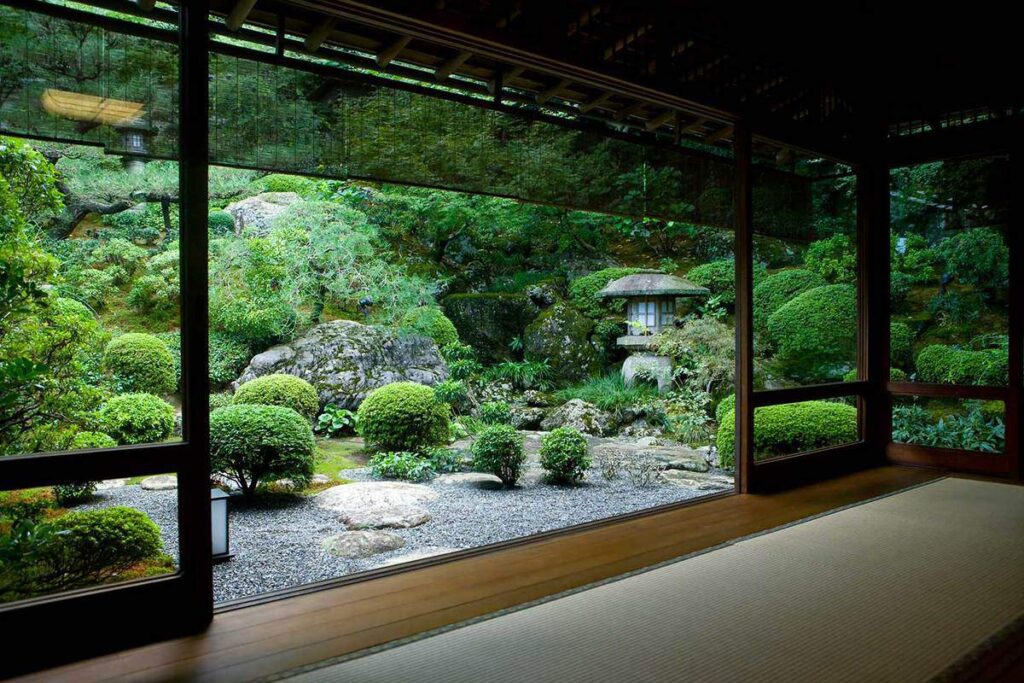Embrace Tranquility: Designing Your Zen Garden Living Room
In today’s fast-paced world, creating a sanctuary of peace within your home is more crucial than ever. A Zen garden living room offers just that – a space designed to promote relaxation, mindfulness, and a sense of calm. This isn’t just about aesthetics; it’s about cultivating a mindful environment that supports your well-being. This comprehensive guide will explore the key elements of designing a truly tranquil Zen garden living room, transforming your space into an oasis of serenity.
The Core Principles of Zen Design
Before diving into specific design elements, it’s important to understand the core principles of Zen philosophy that inform this aesthetic. Simplicity, minimalism, and natural elements are paramount. The goal is to create a space that is uncluttered, unfussy, and allows for contemplation. Think clean lines, natural materials, and a focus on functionality rather than excessive ornamentation.
The concept of wabi-sabi, appreciating the beauty of imperfection and impermanence, is also relevant. Don’t strive for flawless perfection; embrace the natural variations and subtle imperfections in your chosen materials. This adds to the authentic and calming atmosphere.
Color Palette: Calming Hues for a Peaceful Atmosphere
The color palette you choose plays a significant role in establishing the mood of your Zen garden living room. Neutral and earthy tones are ideal. Think soft creams, muted greens, calming blues, and subtle grays. These colors promote a sense of tranquility and allow the mind to rest. Avoid bright, jarring colors that can be stimulating and disruptive to a peaceful atmosphere. You can incorporate pops of color sparingly, perhaps through accent cushions or artwork, but keep them subdued and complementary to the overall palette.
Natural Materials: Embracing the Beauty of Nature
Integrating natural materials is crucial to creating an authentic Zen garden living room. Think natural wood flooring, bamboo accents, stone elements, and natural fiber rugs. These materials bring a sense of the outdoors in, creating a connection to nature that promotes relaxation. The texture and warmth of natural materials also contribute to a more comfortable and inviting space.
Furniture: Minimalism and Functionality
Furniture should be functional and minimalist, avoiding clutter and unnecessary pieces. Choose low-profile furniture with clean lines and simple designs. Natural wood furniture is ideal, reflecting the overall aesthetic. Consider using ottomans or floor cushions for extra seating, promoting a more relaxed and informal atmosphere. Avoid overly ornate or bulky furniture that can make the space feel cramped and overwhelming.
Lighting: Soft Illumination for a Serene Mood
Lighting is a key element in setting the mood. Soft, diffused lighting is essential for a relaxing atmosphere. Avoid harsh overhead lighting, opting instead for floor lamps, table lamps, and strategically placed wall sconces. Consider incorporating natural light as much as possible, using sheer curtains or blinds to control the amount of sunlight entering the room. The gentle glow of candles can also add to the serene atmosphere.
Plants and Greenery: Bringing the Outdoors In
Plants are an integral part of a Zen garden living room. They bring life and vitality to the space, while also purifying the air and promoting a sense of calm. Choose plants with calming green foliage, such as bamboo, peace lilies, or snake plants. Consider a small indoor bonsai tree as a focal point, adding a touch of Japanese aesthetic. The presence of greenery fosters a connection to nature, promoting relaxation and mindfulness.
Artwork and Decor: Subtlety and Simplicity
Artwork and decor should be minimal and carefully chosen. Avoid cluttered walls and excessive decorations. Opt for a few carefully selected pieces that complement the overall aesthetic, such as simple landscape paintings, calligraphy art, or minimalist sculptures. These elements should enhance the calm atmosphere rather than detract from it.
Water Feature: The Sound of Tranquility
A small water feature, such as a tabletop fountain or a small indoor pond, can add a significant element of tranquility to your Zen garden living room. The gentle sound of flowing water is incredibly calming and can help to mask other distracting noises. The visual appeal of a water feature also adds to the overall serenity of the space.
Sensory Details: Engaging All the Senses
To create a truly immersive Zen experience, consider engaging all the senses. Incorporate calming scents through essential oil diffusers or incense, choosing aromas such as lavender, chamomile, or sandalwood. Use soft, natural fabrics for cushions and throws to create a tactile experience. Playing calming music can also enhance the overall sense of peace and relaxation.
Maintaining Your Zen Oasis
Maintaining the calm and peaceful atmosphere of your Zen garden living room requires ongoing effort. Regularly declutter the space to prevent it from becoming overwhelming. Spend time tending to your plants, ensuring they are healthy and thriving. Take time each day to relax and enjoy the space you’ve created, using it as a sanctuary for mindfulness and reflection.
Conclusion: Cultivating Your Personal Sanctuary
Designing a Zen garden living room is more than just decorating; it’s about cultivating a mindful and peaceful space that supports your well-being. By embracing the core principles of Zen design, incorporating natural elements, and paying attention to sensory details, you can transform your living room into a tranquil oasis where you can escape the stresses of daily life and find inner peace.

